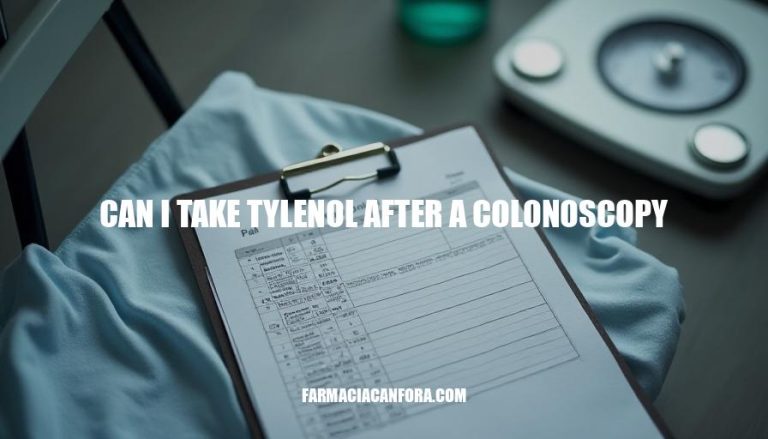


You’re probably wondering if you can take Tylenol after a colonoscopy. This is an important question for anyone who’s had one. Colonoscopies are crucial for checking your gut health, but they can leave you feeling uncomfortable or in pain.
To manage this safely, it’s essential to know what medications are okay to take afterwards. These guidelines help with both pain relief and preventing problems, making sure your recovery is smooth and safe. By following the rules, you can reduce risks and promote healing.
Tylenol (acetaminophen) is generally considered safe for pain relief after a colonoscopy. Healthcare professionals often recommend it because it does not irritate the stomach lining, unlike NSAIDs such as ibuprofen or aspirin. However, it is crucial to consult your doctor before taking any medication post-procedure, as individual health conditions and medication interactions can influence safety.
Dosage guidelines should be strictly followed to avoid potential liver damage, especially if you are taking other medications that may interact with acetaminophen.
Patients are advised to monitor symptoms such as persistent pain, changes in bowel movements, or allergic reactions, and report them to their healthcare provider.
Alternative pain management options include non-pharmacological methods such as rest, hydration, and the use of heating pads to alleviate abdominal cramping and bloating. In cases where Tylenol is not suitable, healthcare providers may suggest other medications or therapies tailored to the patient’s specific needs. Complementary approaches like physical therapy, psychological support, and preoperative education have also been shown to enhance recovery outcomes and reduce reliance on medications.
1pharmacyknowhow.com2link.springer.com
Tylenol (acetaminophen) is generally considered safe for pain relief after a colonoscopy, but it’s essential to consult your doctor before taking any medication post-procedure due to individual health conditions and potential interactions.
Follow dosage guidelines carefully to avoid liver damage. Monitor symptoms such as persistent pain or allergic reactions and report them to your healthcare provider.
Consider alternative non-pharmacological methods like rest, hydration, and heating pads for abdominal cramping and bloating relief.